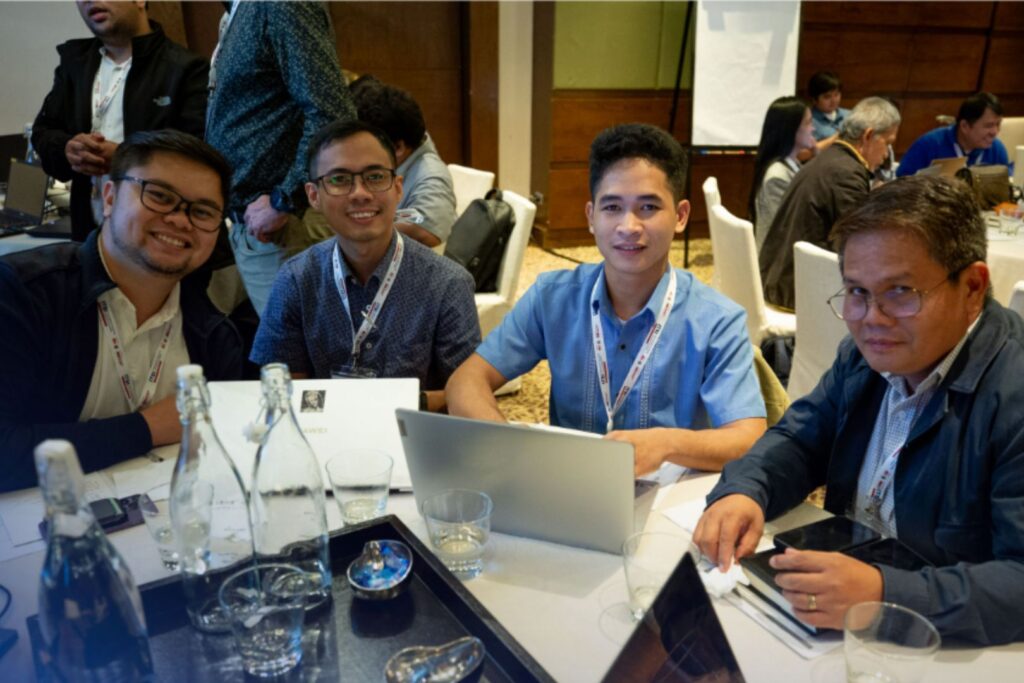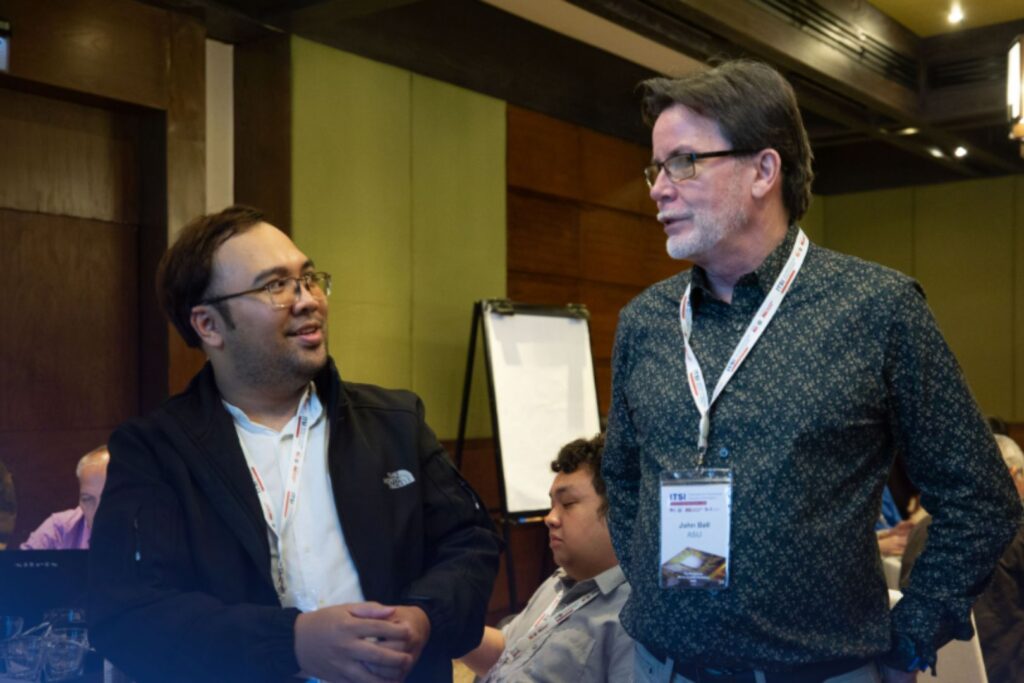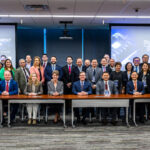The Board of Investments (BOI) and the Arizona State University (ASU) gathered 51 faculty members from 12 educational institutions in the Philippines to participate in the ITSI Semiconductor Faculty Certification Program in-country Workshop from December 9 to 13, 2024.

The workshop was conducted to enhance academe’s curricula and develop a stable talent pipeline that meets the demands of the local semiconductor industry.
Making It Happen with PH Universities. BOI Acting Director Ronaldo Buluran with other government officials, representatives from the Arizona State University, organization officials, and faculty members during the kickoff session of the ITSI Semiconductor Workshop at the New World Makati Hotel on December 9, 2024.
In his opening remarks, Acting Director Ronaldo Buluran of the BOI’s Manufacturing Industries Service (MIS) emphasized that the demand for semiconductors is expected to be bigger in the country. Hence, he stressed that the workshop would further deepen the participants’ knowledge and expertise in this field.
“You, our faculty, will play a crucial role in developing a skilled and trainable workforce for our local semiconductor industry. The skills and knowledge you have gained since this program began in August, along with the outcomes you will bring back to your institutions, will be instrumental in shaping the future of this industry,” Acting Director Buluran told the workshop participants.
For the first part of the program, Dr. Danilo Lachica, President of the Semiconductor and Electronics Industries in the Philippines, Inc. (SEIPI); Mr. Luke Mendoza of the Office of the Special Assistant to the President for Investment and Economic Affairs (OSAPIEA); and Dr. May Rose Imperial, Chair of the Technical Committee for Electronics Engineering of the Commission on Higher Education (CHED), discussed the current state of the semiconductor industry in the Philippines.
The latter part of the program featured an Institutional Group Planning session led by Professor John Ball of Arizona State University. Throughout the workshop, participants shared their insights and suggestions to elevate the semiconductor industry in the country during the equipment mapping activity.
Professors Hongbin Yu and Ball led the facilitation of the equipment mapping group activity. The participants discussed the sample models for shared infrastructure, models that might be possible in the Philippines, among others.
One of the ideas brought up during the equipment mapping group activity was to enable course offerings and infrastructure development through active collaboration between the government (DTI, DOST, DICT, among others) and the private sector.
Elevating their expertise. Professor John Ball, one of the facilitators from Arizona State University, led the discussions for the participants to engage in an interactive activity within their institutional groups before entering into a full-group discussion to uncover strengths and challenges across institutions.

The semiconductor industry accounts for 56.9% or USD 41.91 billion of the Philippines’ total exports in 2023. As of October 2024, the industry accounts for around 54% or USD 33.46 billion of the country’s exports.
Further, the ITSI Fund is part of the U.S. CHIPS and Science Act, aimed at enhancing global semiconductor supply chains. The Philippines, identified as one of six strategic countries for the project, has been allocated USD 13.8 million to support workforce development and public policy reforms within the semiconductor industry.
Similar to critical minerals, semiconductors form part of the strategic components essential for everyday life – clean energy systems, transportation, entertainment systems, communications, healthcare, efficient manufacturing systems, and defense applications. With the growing move towards digitalization of everyday transactions, as well as the application of AI in various systems, the demand for semiconductors is expected to grow significantly and with more sophistication.
The Philippines plays a crucial role in the global semiconductor supply chain, with established expertise in assembly, packaging, and test services, as well as growing IC design capabilities recognized by multinational companies. This is supported by a stable base of competitive IC design firms providing services to the global IC ecosystem.
The industry is expected to grow further given the country’s strong intellectual property protection regime and the government’s skills development initiatives, including partnerships with bilateral partners like the United States, Chinese Taipei, and Europe, according to Acting Director Buluran.
Recognizing the importance of this industry to the economy, it is critical to provide the necessary support, particularly in developing a skilled labor force to sustain its growth. On average, the country produces around 730,000 graduates annually across various higher education disciplines, with approximately 10-12% graduating from engineering and technology courses. To harness this human resource potential and achieve industry growth and export targets, local and international partners are working together to add 128,000 semiconductor and electronics-related engineers and technicians to the labor pool by 2033.
The workshop is one of the main activities of the ITSI Faculty Certification Program offered by ASU under its two-year project with the Philippines relative to the US CHIPS Act. It aims to enable institutions in the Philippines to enhance Assembly, Test, and Packaging (ATP) education by providing faculty members with a model and design support to implement programs at their universities.
Interested faculty and educational institutions who may be interested to join the Program may check out the Program website: https://itsi-skillsaccelerator.org/
Source: https://boi.gov.ph/boi-12-ph-universities-join-the-itsi-semiconductor-workshop-kickoff-session/


